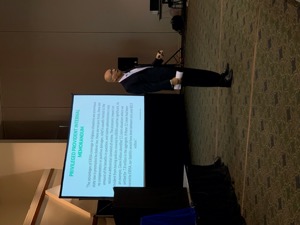
Yosaun Smith v. CommonSpirit Health et al. concerns the Plaintiff’s, Yosaun Smith (“Smith”), action against the administrators of her ERISA retirement plan, Defendants CommonSpirit (“CommonSpirit”) and Catholic Health Initiatives Retirement Plans Subcommittee (“Subcommittee”) alleging that the Defendants violated ERISA when they did not replace “actively managed mutual funds with passively managed mutual funds.” The Court of Appeals for the Sixth Circuit upheld the decision from the district court, affirming that ERISA does “not give the federal courts a broad license to second-guess the investment decisions of retirement plans,” and that remedies are only available under ERISA when a fiduciary duty has been violated. Thus, the Plaintiff in this case alleged no facts supporting the conclusion that the Defendants had violated any fiduciary duties under ERISA.
Over the last few decades, employer provided retirement funds have commonly been structured as defined-contribution 401(k) plans. These plans allow participants to contribute pre-tax income to accounts, the amount often matched by employers. Therefore, the value of the assets in the account is the determining factor of the amount participants will receive in their payout; “A beneficiary’s payout thus may ‘turn on the plan fiduciaries’ particular investment decisions.’” ERISA provides that under a defined-contribution plan, participants may bring an action for breach of fiduciary duty against the plan administrators if the fund is imprudently managed. Until recent years, plans were actively managed by plan fiduciaries where “the portfolio manager actively makes investment decisions and initiates buying and selling of securities in an effort to maximize return.” However, more recent trends have enabled investors to use index funds, creating a “fixed portfolio structured to match the overall market or a preselected part of it.” This option means that there is “little to no judgment” involved in the management of the plan.
The Plaintiff in this case is an employee of Catholic Health Initiatives (otherwise known as CommonSpirit Health) and has been a participant in its defined-contribution 401(k) plan (“Plan”) since 2016. The Plan is administered by an appointed administrative committee and serves more than 105,000 participants with more than $3 billion in assets. Options available to participants include index funds with low management fees (0.02%) as well as funds that are actively managed with management fees up to 0.82%. If employees do not select a fund, they are placed by default into the Fidelity Freedom Funds, which are actively managed. These are a group of “target date fund[s]” meaning that “managers change the allocation of the underlying investments that they hold over time, say by selling funds that hold stocks to buy a greater proportion of funds that hold bonds or cash.” The purpose of this management is the “reallocation of asset types [allowing] managers to protect an employee’s investment gains and spare her the unpredictability of market fluctuations as she approaches retirement.”


 Kentucky ERISA Disability & Life Insurance Claim Lawyers
Kentucky ERISA Disability & Life Insurance Claim Lawyers









